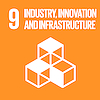The United Nations Industrial Development Organization (UNIDO) and partners have launched a global Green Chemistry project to increase global awareness and deploy Green Chemistry approaches and technologies. Drawing on a large research consortium led by experts at the Center for Green Chemistry and Green Engineering at Yale University and other international partners, the collaboration will develop curricula and training on green chemistry practices as well as document case studies of implementing Green Chemistry in developing countries and economies in transition.
One of the main outputs of the project is "Green Chemistry Guidance Document and a Technology compendium". Our partner Yale University has an open call for the assistance of the scientific community to provide summaries of Green Chemistry and Green Engineering technologies tin order to facilitate the compilation of a "Technology Compendium". Please find more information as well as link for submission on this link: https://www.global-green-chemistry-initiative.com/technology-compendium. Deadline for submission is 15 April 2019.
Many national governments have enacted laws and established institutional structures with a view to reducing the amount of chemicals used and many companies have started to adopt sound chemical management programmes in order to reduce the use of hazardous chemicals throughout the industrial life-cycle. However, the increasing variety and complexity of chemicals and the ever-longer and more intricate chemical supply chains and waste streams expose serious gaps, lapses and inconsistencies in government and international policies and corporate practices.
Green Chemistry focuses on the inherent nature/properties of chemicals, materials, products, processes, or systems and as such is trans-disciplinary in nature, encompassing elements of chemistry, engineering, biology, toxicology and environmental science. Green Chemistry reduces pollution at its source by minimizing or eliminating the hazards of chemical feedstock, reagents, solvents and products; or encouraging the invention and innovation of new and non-hazardous solvents, surfactants, materials, processes and products.
The UNIDO Green Chemistry multi-stakeholder initiative brings together a broad network of partners, including the Centre for Green Chemistry and Green Engineering at Yale University, the German Federal Environmental Foundation, Braskem, the largest thermoplastic resins producer in the Americas, as well as several National Cleaner Production Centres (NCPCs) from Latin America, Africa, Asia and Eastern Europe. The three-year project is funded by the Global Environment Facility (GEF).
The project launch on 13 February 2017, organized jointly by UNIDO and the SENAI-FIRJAN Green Chemistry Institute in Rio de Janeiro, Brazil, was attended by more than 150 participants from industry, science, policy and other professional backgrounds. (Read the press release here)
Quotes from partners:
“The GEF is pleased to fund this first global public-private initiative that will help bridge the gap between science and real-world application of Green Chemistry approaches.”
— Evelyn Swain, Global Environment Facility
“Green chemistry approaches have benefited people around the world by making the products people use safer and their manufacturing processes less polluting.”
— Paul T. Anastas, Yale University
| Contribution to the Sustainable Development Goals | ||
|---|---|---|
 |
||